
Filumena Marturano
D'Eduardo De Filippo, Direcció Oriol Broggi
Filumena Marturano is one of the most acclaimed shows in La Perla 29. The airs of Italy of Eduardo De Filippo return to La Perla 29 to tell us about love and revenge, the instinct for survival and aboit daily theatricality. A Neapolitan portrait where love is put to the test and reminds us that it is a force that sometimes bounces in opposite directions.
After 25 years of living supported by Domenico Soriano and multiple refusals to marry her, Filumena decides to feign a serious illness to get Domenico to agree to marry her on her deathbed. The house is full of doctors and neighbors, and in the middle of this funeral atmosphere the priest arrives to give her extremuntion and the wedding is organized. Meanwhile, a young lover of Domenico waits anxiously in the next room for Filumena to cross... But once married Filumena Marturano gets out of bed fresh as a rose, and that's where the show begins.
What has pushed Filumena to set up this whole farce? Why her obsession with marrying Domenico? And why had he been avoiding marriage for 25 years? This is a comedy of tangles, secrets and twisted intentions. Filumena is the protagonist of a life journey that has led her to deceive, steal and take advantage of Domenico, who has always been swimming in opulence. The explosion of their love affair splashes everyone around them and even those who are not yet around them. All the truth is thrown on the table, but we already know that the truth is often painful...
The airs of Italy by Eduardo De Filippo return to La Perla 29 to tell us about love and revenge, the instinct of survival and human pettiness. A Neapolitan-style portrait where love is put to the test and reminds us that love is a force that sometimes bounces in opposite directions.
Text
Eduardo De Filippo
Translation
Xavi Valls Guinovart
Directed and adapted
Oriol Broggi
With
Clara Segura
Enrico Ianniello
Jordi Coromina
Marissa Josa
Jordi Llovet
Eduard Muntada
Lluís Oliver
Xavier Ruano
Josep Sobrevals
Montse Vellvehí
Carla Vilaró
Assistant Director
Albert Reverendo
Scenography
Oriol Broggi
Lighting
Pep Barcons
Costume
Nina Pawlowsky
Characterization
Angels Salinas
Sound
Oscar Villar
Construction of scenography
Taller d'escenografia Castells
A production of La Perla 29
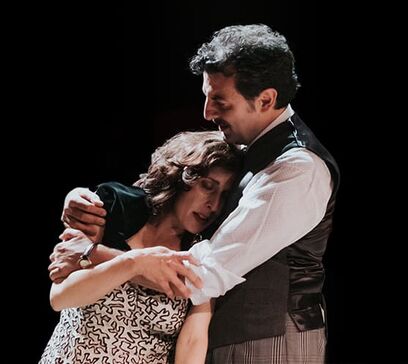
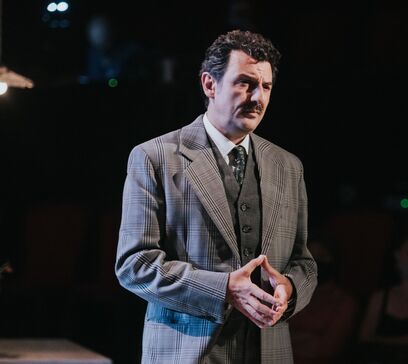
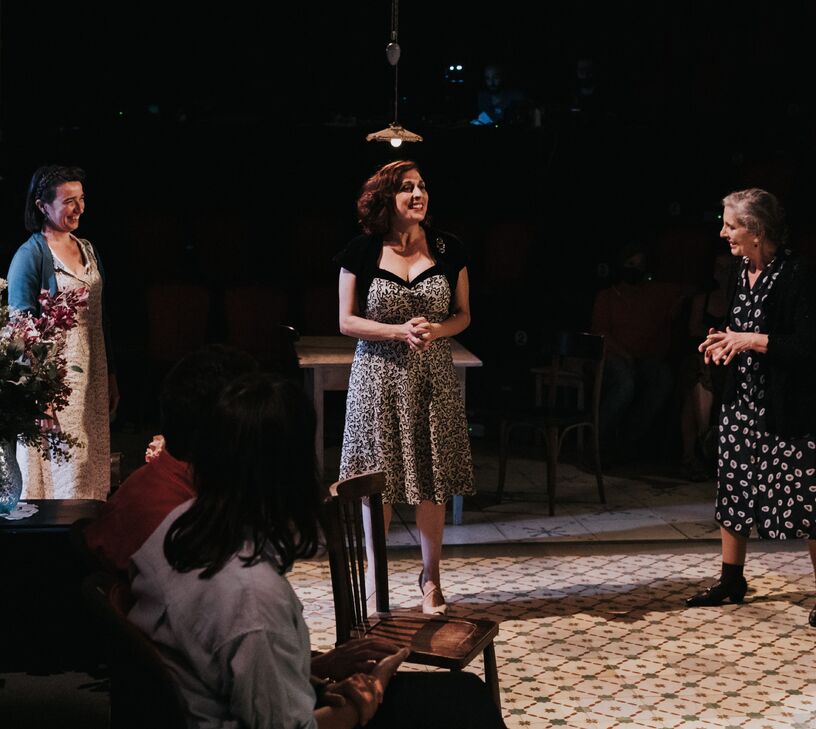
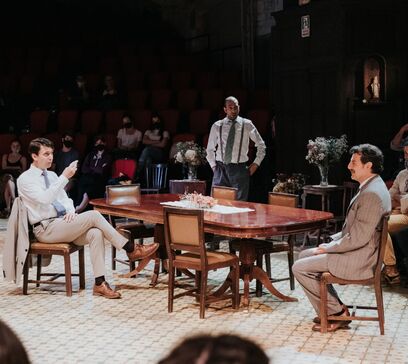
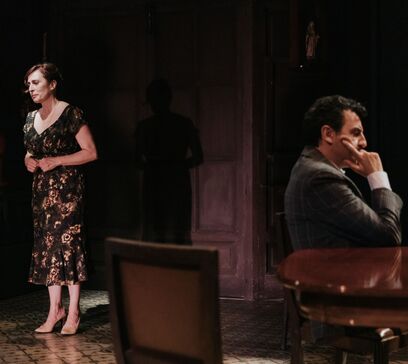
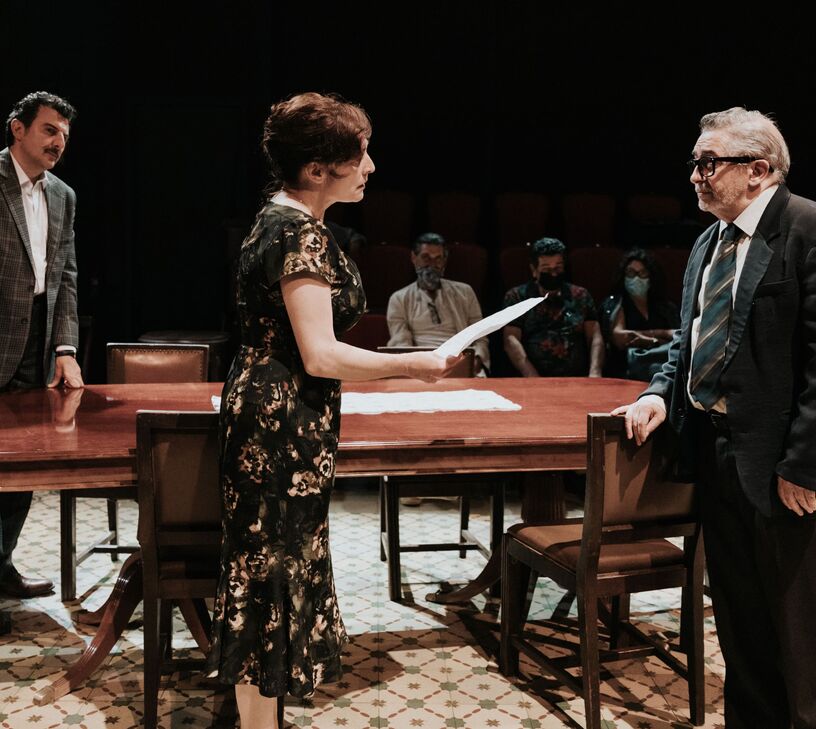
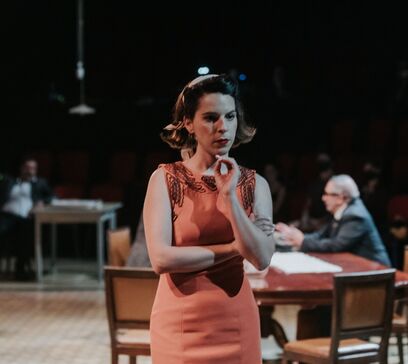
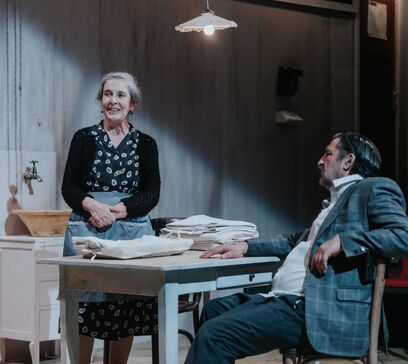
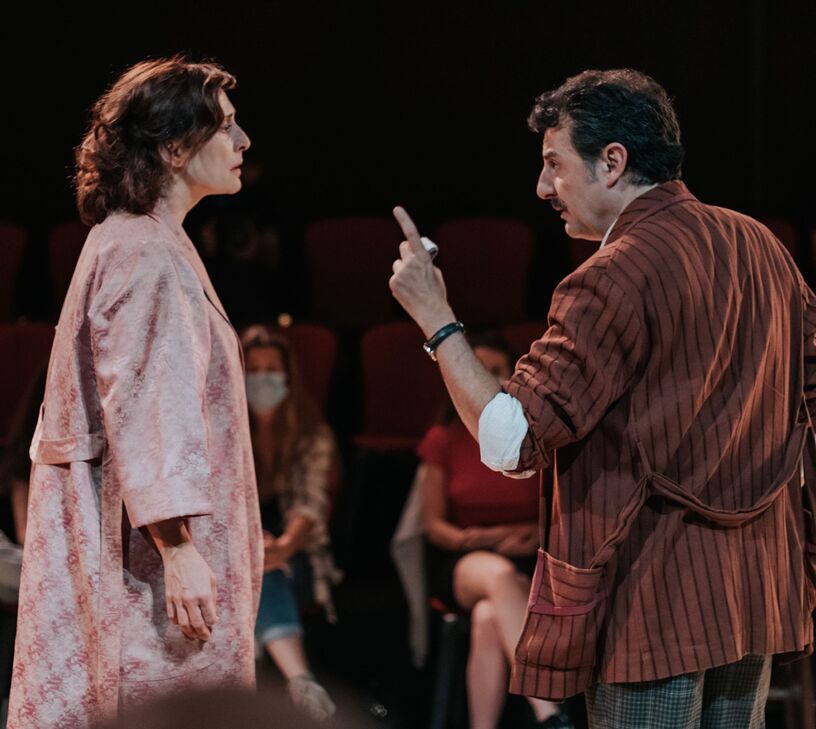
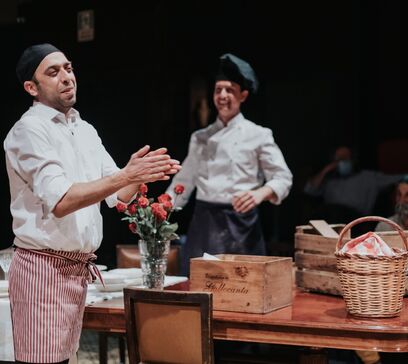
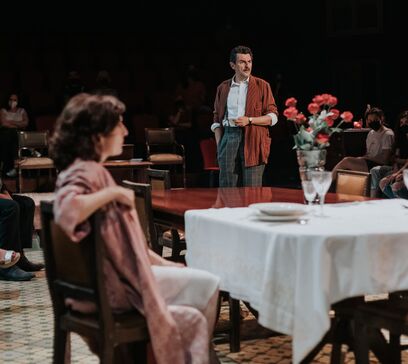
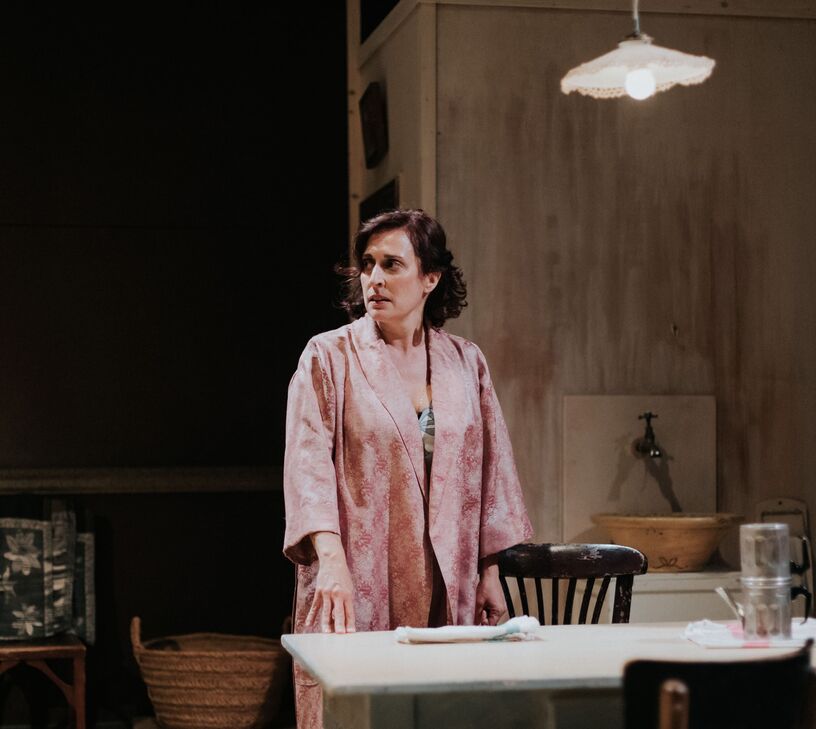
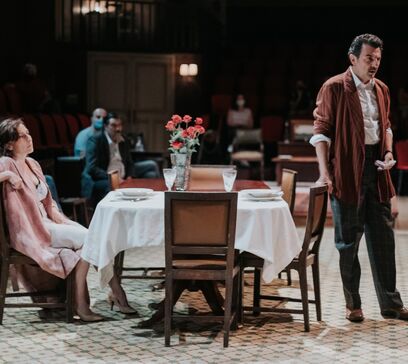
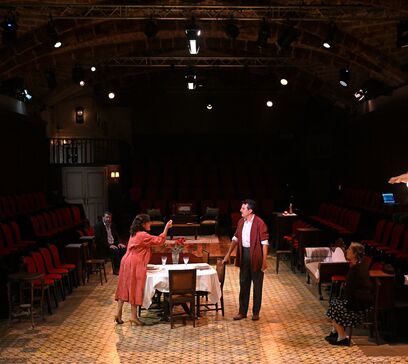
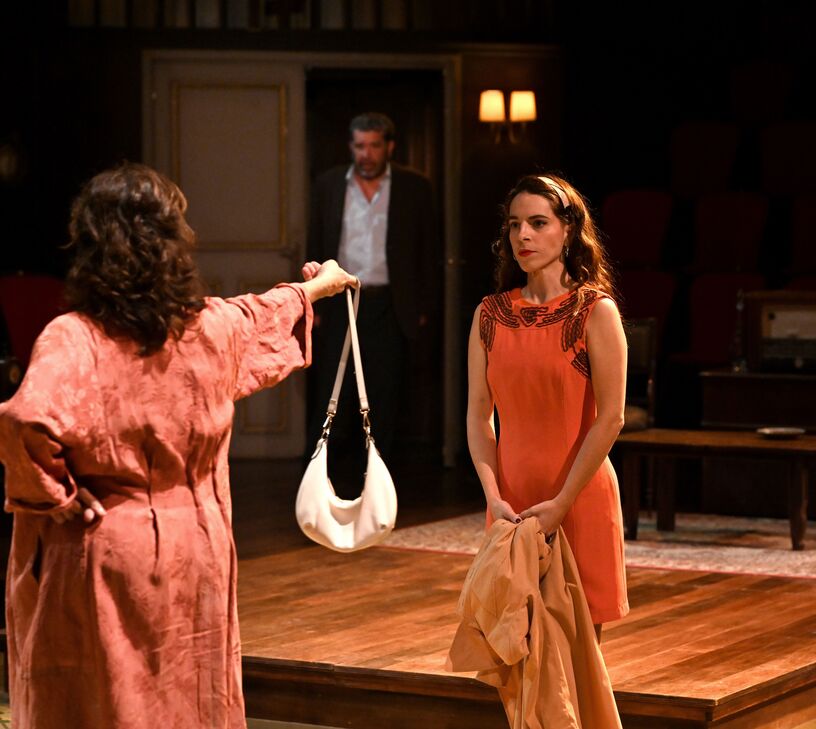
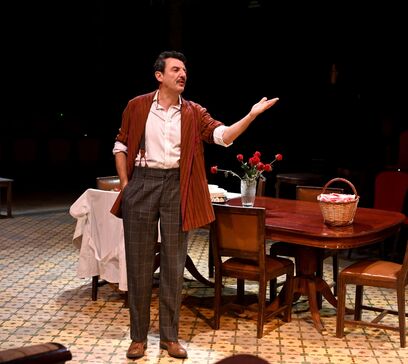
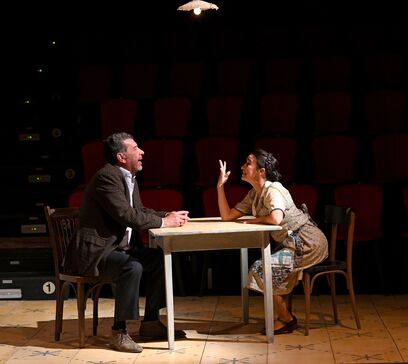
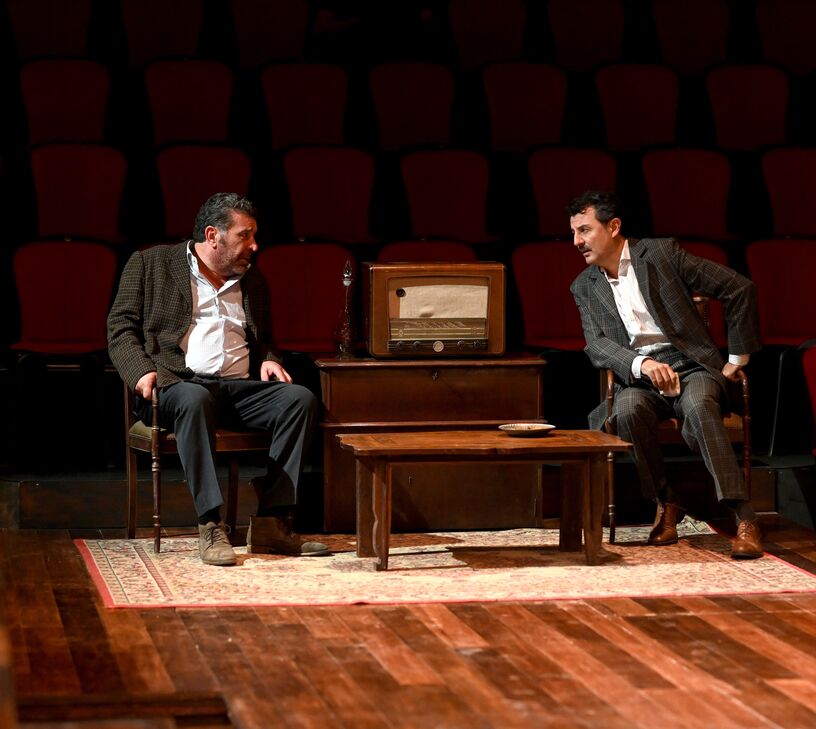
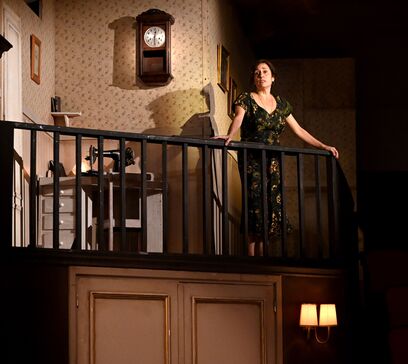
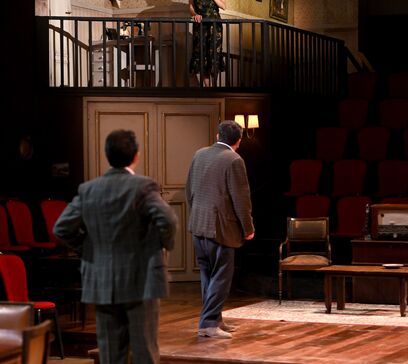
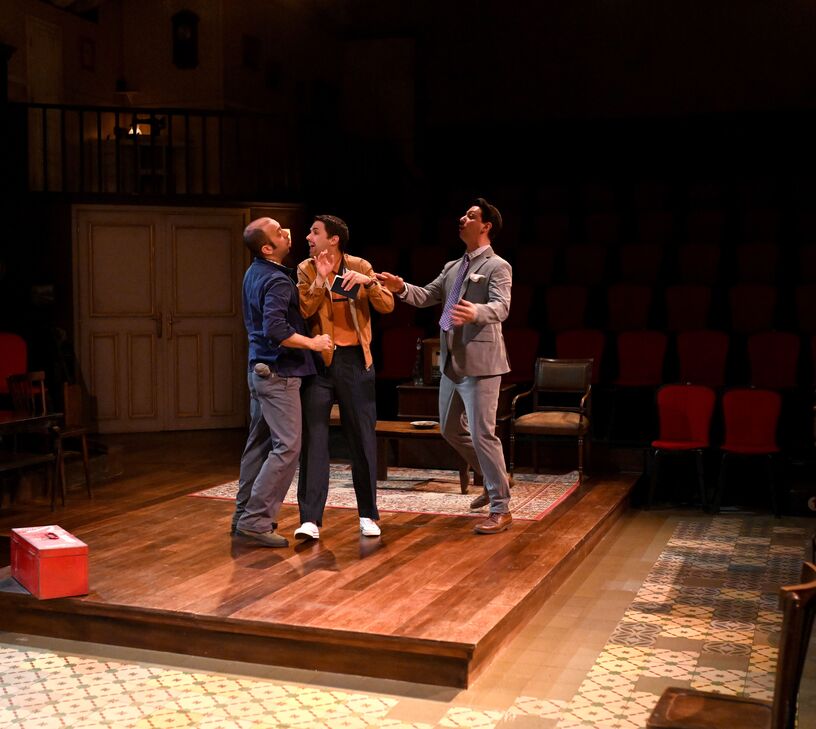
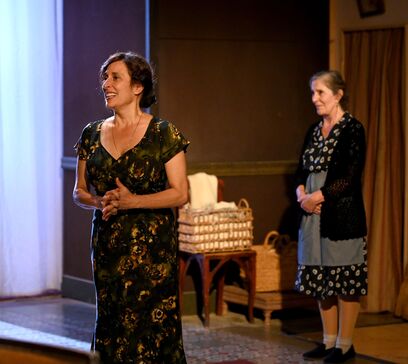
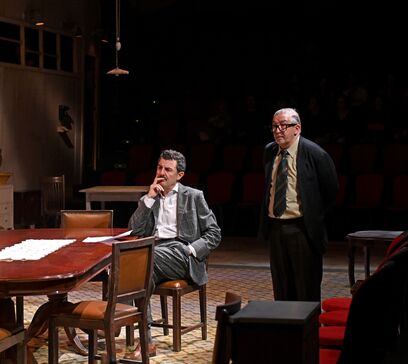
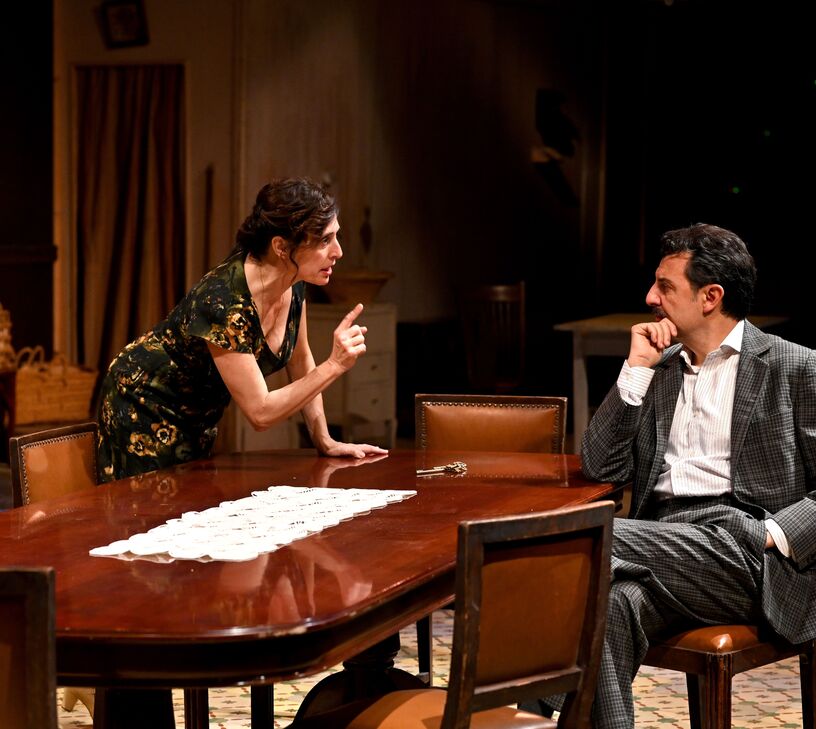
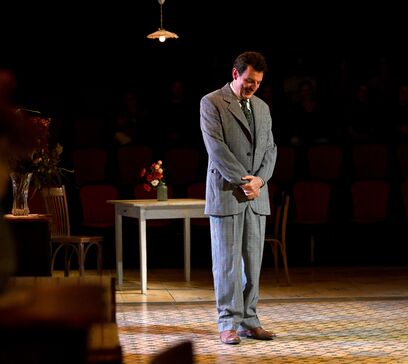
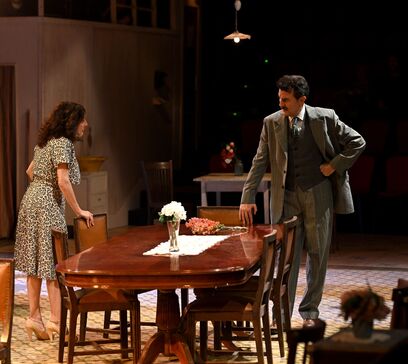
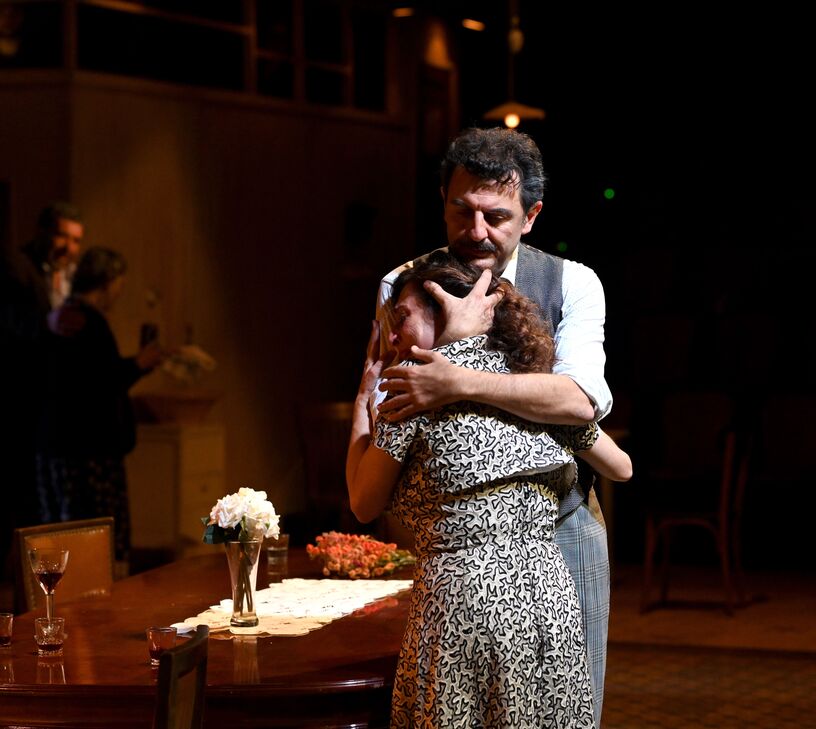

1
Something leads me to think that this work will have to be lived with a certain sense of exhalation. Life passing in front of us, fast but fast. And somehow, just sketched. It has not been finished or limited, and even less as 'packaged', if it can be called that... It just happens in a real way, and that's why the exhalation we're going to feel during the show will want to be beaten back home.
As we read it, as the viewer sees it and also as we try it, we want to find that gesture that I think the author prints in the characters. A present lives in what they are looking for, finding the exact words, the forms, the necessary rhythms. Action that is moving forward without anything being fixed, where everything could change. A piece of life without refinement.
Filumena Marturano was written quickly. And maybe you need to test it and see it quickly. You don't want the mount to weigh. Not wanting the back to be an excessively metaphorical story. That's it. And here is possibly his greatness. In the end, there are small couple discussions. To see who's who. To be understood. To show love or dislove. The passion and strength of understanding.
Like a poem by Salvat Papasseit, or by Foix. ,All is now and nothing’, ,Nothing is mean and no time is Isarda...!’
2
Seeing a play and listening to the characters' conversations; though stigmatized, they have more to say than they teach. After the work, we'll have humanized a little. Because the piece does not give us certain lessons, or in any case we are not particularly interested. We're there, as those moments of his life happen. Let's watch. The essay is the film, as Jordi Balló said in a talk he gave to the Library, which he entitled precisely like this. As he shared us at the time, we do not feel like a finished work, framed, framed. We know that it is not such an important work. It's just a play in a theater, a fiction taken in counterbalance. A moment in their lives that we're lucky to spy.
Or at any rate that is what interests us.
3
Filumena is worth it. She is a revolutionary woman, located in her time and in the society in which Eduardo frames her. She fights against the stigma of her past, which she will reveal to us, and she wants to free her children from the prison that this implies. How many plays do not put their protagonists under the weight of the stigma? It really is a very theatrical principle... Or does the theatrical situation have anything that especially allows this game?
The contradictions of the social place, of restricted citizenship, the internal contradictions of the family that Philena demands, the very important everyday small things that are evident in the language, in the scenery, in the actors. And yet the passion is intense. With De Filippo it's through stereotypes that we follow everything.
Today, seen in a world that has changed so much and in which the gender perspective fortunately calls into question so many parameters, we receive Philumena as a strong woman who orchestrates a story in which it is him, Domenico, who follows a path defined by her. It is Filumena who invents and who marks the way, who carries the action and brings it forward. It'll go from being a strong woman to a more human, more spontaneous, freer woman. She doesn't talk about all this, but in the end she does... We'll let the public have a direct dialogue. A piece of life in front of us like an exhalation that we're going home to see.
Oriol Broggi
Availability
our newsletter
Vols fer-te soci de l’#AsSocPerla? Tota la informació aquí.
C/ Carme, 44 1r 2ª
Tel. 93 217 17 70
C/ Hospital, 56
Tel. 647 29 37 31
(a partir d'1h i 1/2
abans de la funció)
- Sitemap
- |
- Legal Notice
- |
- Cookies usage
- |
- Contact
- |







